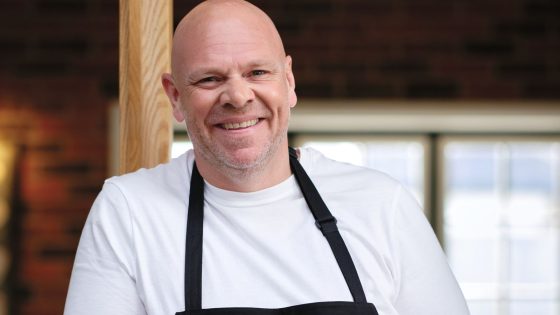Live theater always reflects the moment in which it’s presented, but this season, Broadway charged head-on into the politics of today with unusual force: A play that directly addressed antisemitism, Israel and Gaza opened barely two months after the events of Oct. 7; climate protestors interrupted a 140-year-old drama about the threat of environmental calamity, and an onstage chronicle of Vladimir Putin’s rise to power opened even as the Russian invasion of Ukraine rolled into its third year.
Yet amid all its contemporary resonance, the 2023-24 slate of Tony nominees is equally dominated by one of the oldest forms of modern drama — the family play, now held up to view through an array of contemporary lenses.
And often this season, the most intimate family stories were also the most searingly political.
“Family has always been the American premium in drama, and I think what’s special about family for Americans is it’s where politics begin,” says writer Branden Jacobs-Jenkins, whose play “Appropriate” is nominated for eight awards including best play revival. “Your first social unit is your family. They’re inseparable.”
In “Appropriate,” Jacobs-Jenkins employs the scaffolding of a textbook American drama — a white family returns home to a decaying estate to sort through the belongings of a dead patriarch — to excavate the legacy of racism and slavery that tends to go unspoken in these stories. Although the play first premiered a decade ago, critics and audiences today have nonetheless found the depiction of one family’s sniping, grasping denial to be discomfortingly timely in the post-George Floyd era.
“It’s the hardest thing I’ve ever done, and the most rewarding,” says the star of “Appropriate,” the Emmy-winning actor Sarah Paulson, now up for a Tony for her performance in the show. To her, it makes perfect sense that a play so focused on the personal also calls up the political. “I don’t think there’s any way to reflect what’s going on interpersonally without the consequence of also making a statement or having an opinion or involving what’s happening in our current political climate,” she says.
That certainly proved true for Joshua Harmon, whose play “Prayer for the French Republic,” a multifaceted look at a Gaul family spurred by rising local antisemitism to consider a move to Israel. The show premiered Off Broadway in 2022 but found new topical urgency when its Broadway transfer opened in December, with Oct. 7 still fresh in audiences’ minds.
“I was sort of backed into writing about the politics of it,” Harmon explains. “I wanted to write about one family in France. That was it. But just trying to write about a Jewish family in Paris necessitated the idea that, well, some of them came from Algeria, some from Cuba, some went to America, some were Polish. Suddenly it’s four continents and it’s geopolitical.”
He continued, “I didn’t think of it in terms of promoting an agenda. I didn’t even really have one. I just wanted to understand how people decide to go from X to Y.”
Baseline choices of subject matter and setting can also reflect a political angle, as writers turn a spotlight on characters that American drama has tended to overlook. “I have never seen a braiding shop on a Broadway stage before!” laughs Jocelyn Bioh, whose play “Jaja’s African Hair Braiding” is up for five Tonys, including best play.
Set in a Harlem braiding salon run by West African immigrants, “Jaja’s” boosted the theatrical visibility of Black culture, immigrants and undocumented workers, and it will continue to do so as the play begins to be produced around the country and around the world. Although the show is firmly a comedy, political tensions loom heavy over salon owner Jaja and her college-age daughter.
“There was no way I was going to be able to write a play that was about immigration and policy and people trying to have their own idea of what home is, without talking about family and community,” Bioh explains. “It makes the audience connect with these women as human beings and not as news articles.”
Another best play nominee, Paula Vogel’s semi-autobiographical “Mother Play,” shines a new, contemporary light on the traditional family drama. Jessica Lange, one of the show’s nominated stars, has headlined more than one old-school family tale, including “Long Day’s Journey Into Night” (for which she won a Tony) and “The Glass Menagerie.” She says, “There’s a long tradition in theater of plays like this, but I think this one is unique. For one thing, it’s told from a woman’s perspective” — and a queer woman at that.
The show looks back at a family’s life from a POV informed by contemporary social and political mores. At the heart of the story is the bond between a brother and a sister (Tony nominees Jim Parsons and Celia Keenan-Bolger), growing up queer in an unwelcoming era. “I’ve never seen that kind of sibling story told on stage before,” Parsons says.
In “Mary Jane” (four Tony noms), playwright Amy Herzog was very much aware of the political issues raised by her show, about a single mother (played by Tony nominee Rachel McAdams) caring for a chronically ill child. Herzog says an earlier draft of the play functioned as a more overt condemnation of the health care systems that leave caregivers stranded, especially women.
“I’m sure there’s a good, very political version of this story that could be written, but for me it’s not dramatically where this play lives,” Herzog explains. “Bureaucracies fail us, especially women, and women end up picking up the slack and do an enormous amount of work unpaid. I wanted to look more deeply at Mary Jane’s experiences moving through the world as
a caregiver.”
While the tight, humane focus of “Mary Jane” conveys the play’s politics through its emotional force, Herzog found that in creating a new adaptation of Ibsen’s “An Enemy of the People” (five noms), it proved most effective to steer clear of underlining the 1883 play’s parallels to modern-day concerns about the environment — because they were so starkly evident that she worried audiences might imagine they were contemporary additions.
“My thought was that providing the audience with a little bit of distance to these people, with the paraffin lamps and the 19th century clothing and the slightly archaic way of interacting, would allow people to enter into the concerns of the play more fully,” she says of the story, which anchors its environmental dilemma in a familial rift between two brothers.
Throughout the Broadway season, such charged family stories were joined by revivals that similarly spoke to the moment, like “Purlie Victorious” (six noms) and “Cabaret at the Kit Kat Club” (nine nods), as well as new shows with political subjects like “Suffs” (six noms), a musical about the fight for women’s suffrage, and “Patriots,” a play about the man who orchestrated Putin’s rise to power.
All these productions landed with inescapable immediacy, galvanized by today’s politics.
“It was impossible to separate the family in this play from their political situation,” says Betsy Aidem, nominated for her lead performance in “Prayer for the French Republic.” “To come back and do the play after Oct. 7 was a huge confluence of meaning and fear and responsibility and privilege. People were talking to us about security and about how we should talk to the press. You suddenly realize your level of fear is no longer abstract. It’s real.”
The 77th Tony Awards will be held on June 16, airing on CBS and Paramount+.
Source Agencies




